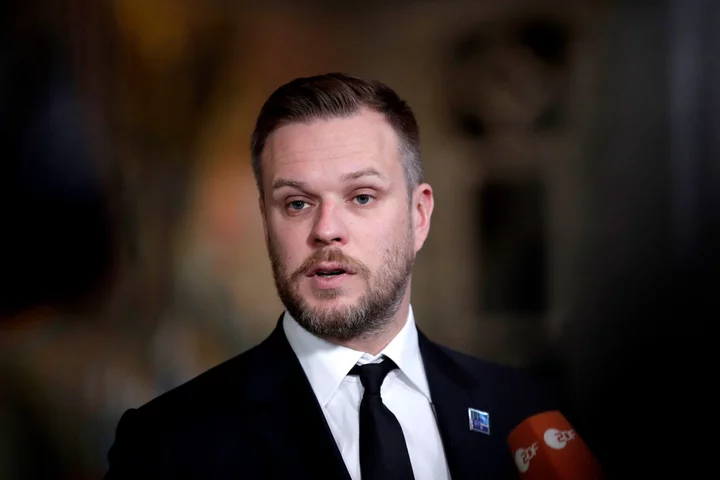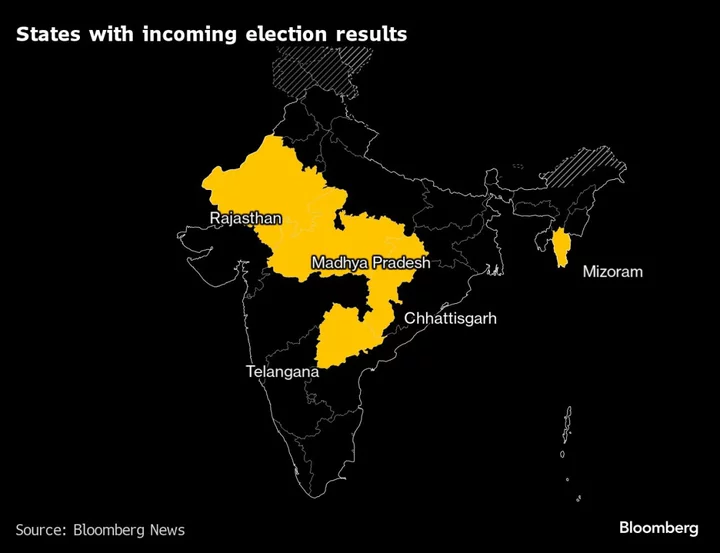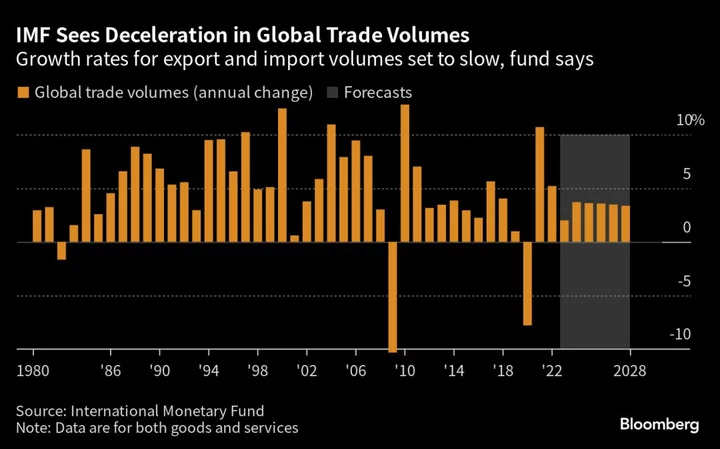Three Baltic countries and Ukraine said they won’t attend a meeting of the European security body OSCE after it invited Russian Foreign Minister Sergei Lavrov to take part.
Lithuania, Estonia and Latvia said in a joint statement Tuesday they will stay away from the gathering of the 57-member Organization for Security and Cooperation in Europe. “It will only provide Russia with yet another propaganda opportunity,” the countries’ foreign ministers said ahead of the meeting due in Skopje, North Macedonia, on Thursday and Friday. Ukraine also announced it won’t take part.
In an interview with Bloomberg, Lithuanian Foreign Minister Gabrielius Landsbergis said earlier that the OSCE risks becoming “brain dead” as US and European allies bend to Russia’s will by negotiating with Moscow over top jobs and which country will chair the organization. The body has offered Malta to take over as chair in a compromise after Moscow pushed back against Estonia, he said.
“We’re dancing to a fiddle that’s being played by Russians and I don’t agree with that,” Landsbergis said. “If there is an organization that could be called actually brain dead, we will very much have a chance to see the OSCE becoming this.”
Landsbergis cited a term used by French President Emmanuel Macron in 2019 to describe the NATO military alliance, which faced deteriorating transatlantic relations under US President Donald Trump. The term is better suited to the OSCE as it debates European security with Russia at the same table, while Moscow’s war in Ukraine continues, Landsbergis said.
The OSCE grew from efforts to reduce tensions during the Cold War but its role has been in doubt since Russian President Vladimir Putin ordered troops into Ukraine. The tensions over the OSCE come as the US and the European Union struggle to agree to more funds for Ukraine, while weapons stocks on both sides of the Atlantic have been depleted and defense companies aren’t ramping up quickly enough.
Landsbergis said the OSCE discussions are part of ongoing negotiations to get Russia to sign off on top jobs at the institution as well as on the body’s budget.
In the joint statement, the Baltic nations said Lavrov’s attendance at the meeting “risks legitimizing aggressor Russia as a rightful member of our community of free nations, trivializing the atrocious crimes Russia has been committing, and putting up with Russia’s blatant violation and contempt of the OSCE.”
Ukrainian said it will skip the session because Russia “systemically” blocks consensus on key issues and turned the organization into “a hostage of its whims and aggression,” according to a statement from the Foreign Ministry.
Lavrov’s Plans
Lavrov has said he plans to accept the invitation if he’s able to travel given an EU flight ban for his country.
North Macedonia, which holds the rotating chairmanship of the group, said it was prepared to temporarily lift a ban on aircraft from Russia to allow Lavrov to attend the talks. Bulgaria has also said it would allow Lavrov’s plane through its airspace, though the permit won’t be valid for members of the Russian envoy’s delegation who are under EU sanctions.
By contrast, Poland, which held the chairmanship last year, had barred Lavrov from attending a December 2022 OSCE ministerial meeting in the city of Lodz.
Bujar Osmani, North Macedonia’s foreign minister, told reporters in Brussels that “Lavrov is not coming to Skopje, he’s coming to the OSCE, just as he went to the UN in New York a few months ago.”
Speaking to reporters ahead of a meeting of NATO foreign ministers, Osmani said his message to Lavrov would be that the “Russian Federation has violated the very foundation of the organization that I chair, the principles and commitments of the OSCE.”
--With assistance from Courtney McBride, Kevin Whitelaw and Kateryna Chursina.
Author: Natalia Drozdiak, Milda Seputyte and Selcan Hacaoglu









